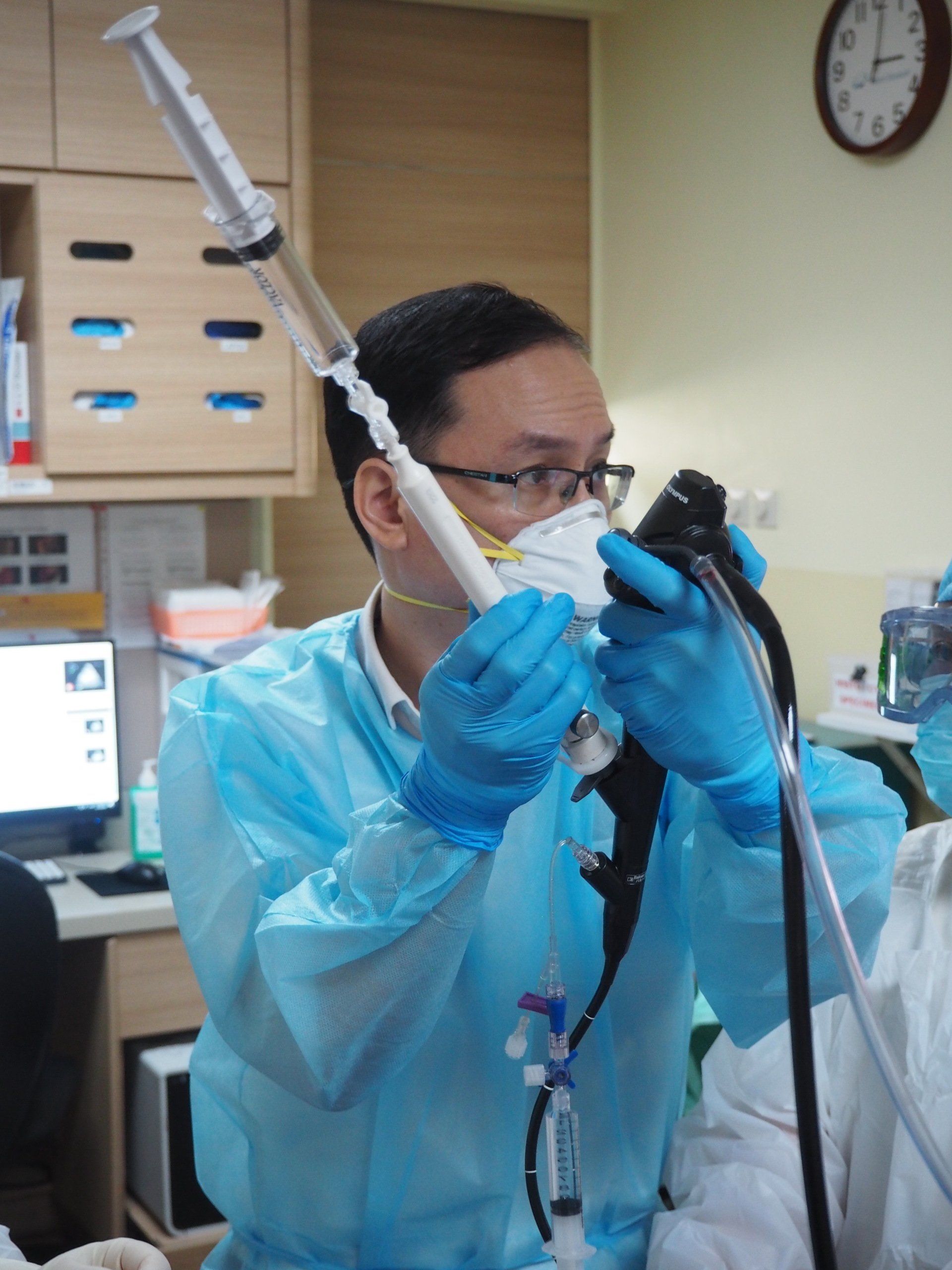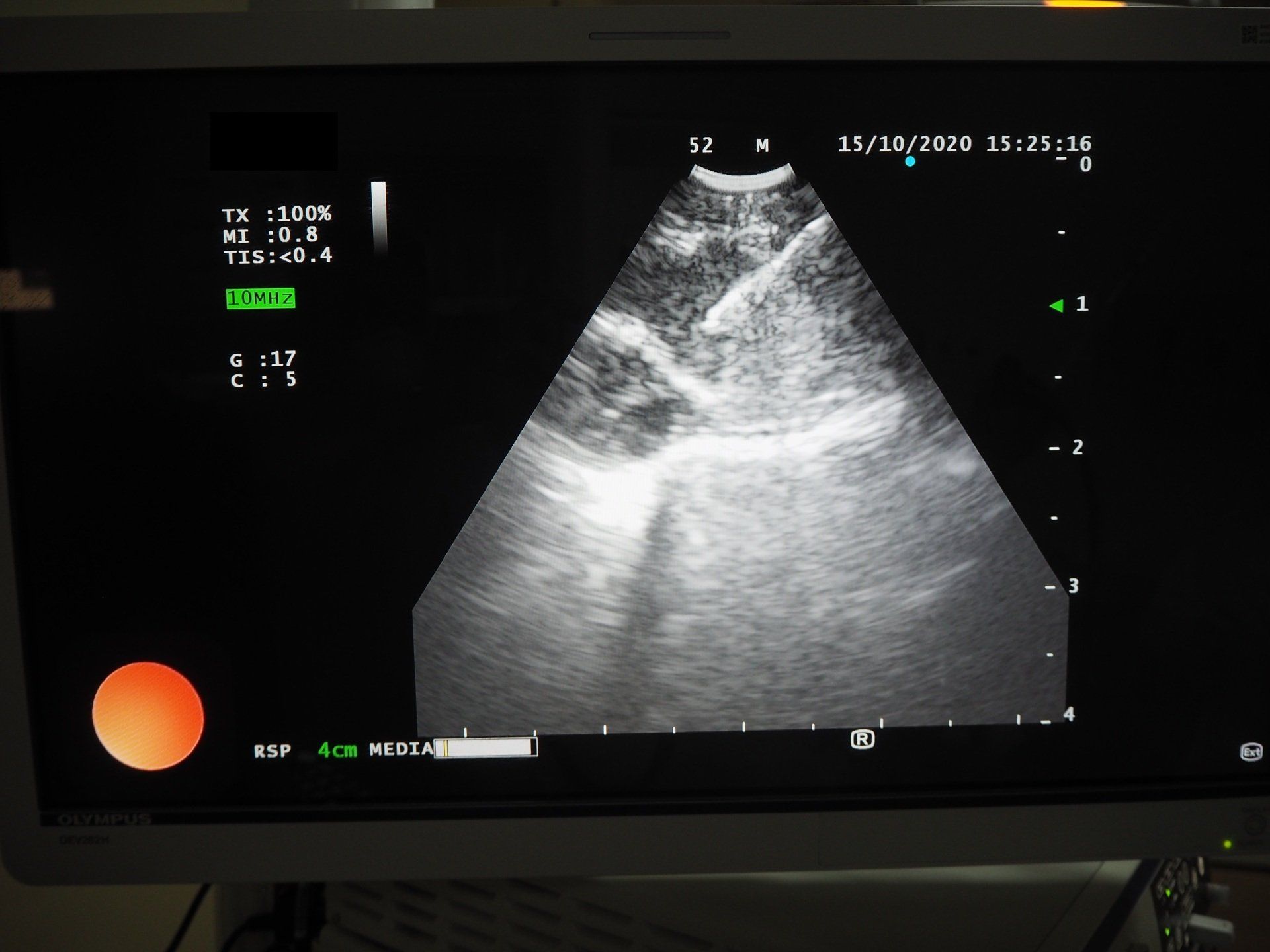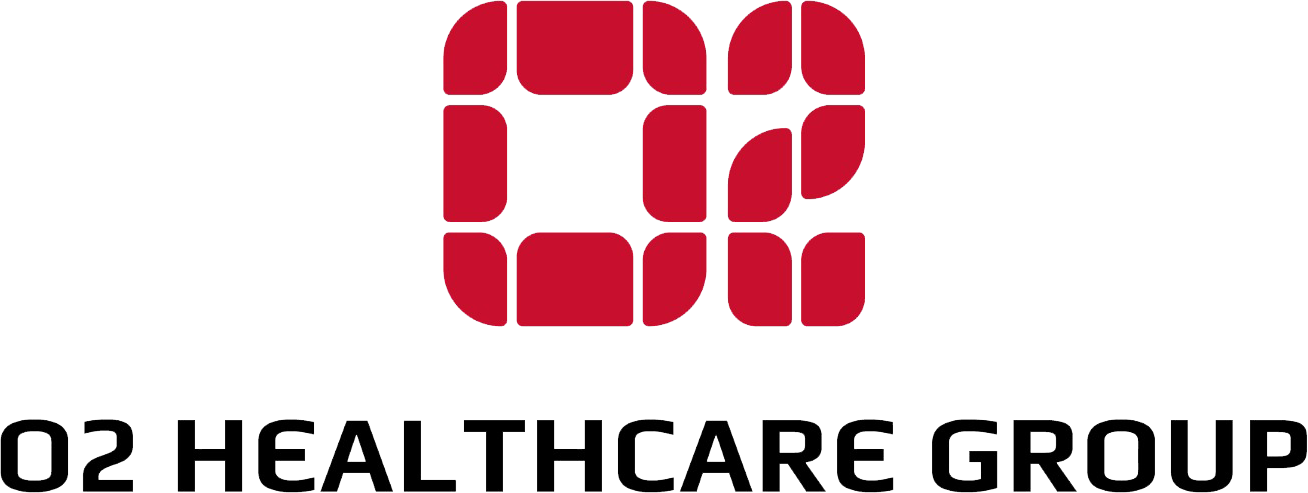Patient Resources
What is EBUS-TBNA (Endobronchial Ultrasound-Guided Transbronchial Needle Aspirate)?
Endobronchial ultrasound-guided transbronchial needle aspirate (EBUS-TBNA) is a special technique used to take samples of body tissue inside the chest without having to undergo an operation.
During this procedure, a special telescope (called a bronchoscope) is inserted through the mouth or nose into the airways. Ultrasound technology allows the doctor to see the structures just outside the airway.
By being able to see the structures outside the airway, the doctor is able to safely pass a fine needle through the airway to take samples of abnormal tissue.
What is it done for?
EBUS-TBNA is mainly done to take samples of tissue from the mediastinum. The mediastinum is the part of the chest between the lungs, and contains the heart, gullet, windpipe and lymph nodes.
This area of the body is usually difficult to access without open surgery, hence the usefulness of EBUS-TBNA
It may be used to investigate enlarged lymph nodes. This may be due to tuberculosis, sarcoidosis or even cancer.
It may also be used to see how much a cancer has grown or spread by sampling tissue from the lymph nodes. This is a process called staging.
Preparing for EBUS-TBNA
This is similar to bronchoscopy. At the start of the procedure, you will be given a local anaesthetic to numb your throat and nose, and a medication to make you sleepy. The duration of EBUS_TBNA can vary, anywhere from 20 minutes to 1 hour, depending on what the doctor sees during the procedure and what needs to be done, e.g. biopsy. Throughout the procedure, your blood pressure, heart rate and oxygen level will be continuously monitored.
What happens after the EBUS-TBNA?
After the EBUS-TBNA, you will be monitored for 2-4 hours in the recovery area. Your throat may be irritated and you may continue to feel groggy because of the sedatives administered to you. Typically, you are only able to eat and drink after 2-3 hours. You may cough up small amounts of stale blood for a day or two. As the effects of the medications can last for several hours, it is important that you are accompanied by someone who will be able to take you home..
Possible Complications of EBUS-TBNA
A bronchoscopy is usually very well-tolerated. Occasionally, the following complications may occur:
- Bleeding or pneumothorax (collapse of the lung due to a collection of air trapped in the cavity between the lung and the chest wall). These complications can occasionally occur, especially after a biopsy.
- Hoarseness
- Infection
- Spasm of the airway, leading to breathlessness
- Heart complications such as an abnormal rhythm or even a heart attack
- Complications related to the sedative medications.







